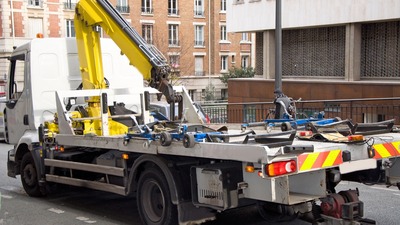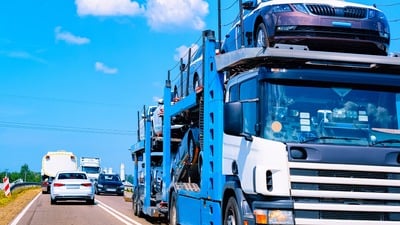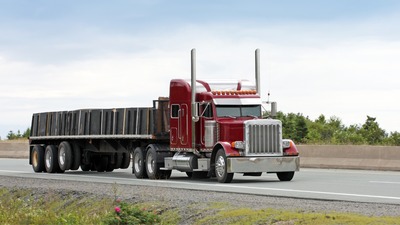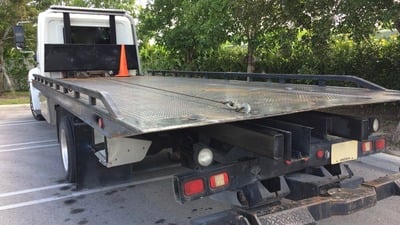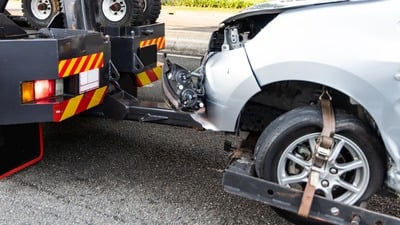Introduction to Modern Wrecker Supplies
Wreckers and tow trucks are the unsung heroes of the road, quietly taking care of disabled vehicles and clearing accidents. The technology infusion into wrecking equipment has turned a once brawn-dominated job into a more precise operation. With advances in hydraulics, GPS, and vehicle automation, today's wrecker supplies are smarter and more efficient. Hydraulic systems now allow for heavier loads, meaning fewer trips and saved time. GPS technology helps tow truck drivers find the quickest routes, dodging traffic and accelerating response times. Also, the introduction of automation in some models streamlines operations like hooking up a car – it's no longer all about muscle, but about precision. All these tech enhancements have not only boosted the capabilities of tow trucks but have also improved safety—for both operators and drivers on the road. Whether it's the latest wheel lifts, self-loading dollies, or remote-controlled winches, technology is reshaping how vehicles are rescued and towed. Stay hooked as we dive deeper into how tech is reinventing the towing industry wheel by wheel.
Advancements in Towing Technology
Towing rigs and wreckers have undergone a tech transformation, tightening up the slack in the towing world. No longer clunky beasts, they're now built smarter, not just stronger. We're seeing lightweight materials that bump up fuel efficiency and GPS systems that pinpoint location with sharp precision. But it's not just about materials and gadgets. Towing software has hitched a ride with the digital era and now offers features like real-time tracking of tow trucks, digital dispatch, and seamless payment systems. This means faster response times, fewer hiccups when the metal meets the metal, and a smooth process from hookup to drop-off. For the tow truck crew, this tech is a game changer—it means they can do their job with more accuracy and less guesswork. Sure, the basics of towing will always be hook, tow, and go, but now it's done with a level of finesse that old school tow hands might not recognize.
The Role of Automation in Wrecker Equipment
Automation is shaking things up in the towing industry. Imagine winches that wind themselves, tow trucks that change gears without a driver's touch, and systems that calculate the exact angle and force needed to hoist a vehicle safely—all with the push of a button. This isn't sci-fi; it's what's happening on the ground. With computer systems getting smarter, wreckers are now equipped with gadgets that make towing less of a brute-force job and more of a precision task. This tech isn't just for show; it's about efficiency and safety. It means quicker clear-up times on busy roads and less risk of injury from manual labor. As towing gets a high-tech makeover, operators can handle tough situations with a cool head and a steady hand—thanks to automation.
Enhancements in Safety Features for Towing Operations
Safety on the road is not something to be taken lightly, especially when it comes to towing operations. Thanks to technology, wrecker supplies and towing equipment have gotten a significant safety upgrade. Modern tow trucks are now equipped with advanced braking systems that help prevent accidents by responsively stopping both the tow truck and the vehicle in tow. They also come with stability control features to keep the truck from swaying or tipping while on the move. High-powered LED lights make sure the tow truck is visible to other drivers, even in the murkiest of conditions. And let's not forget about the cameras and sensor systems that provide a 360-degree view around the truck, helping to eliminate blind spots and alert the driver to any potential hazards. It's all about getting the job done without risking lives—technology is making that easier every day.
The Evolution of GPS and Tracking Systems in Towing
Gone are the days of towing companies relying on two-way radios and paper maps to locate stranded drivers. The game has changed with the advent of GPS and tracking systems. These technological masterpieces provide real-time data and precise locations, making the job of wrecker services a breeze. Thanks to GPS technology, tow truck operators can now reach customers faster, reducing wait times and increasing efficiency. Moreover, dispatchers can oversee the entire fleet with GPS tracking, ensuring the closest truck gets to the scene promptly, which streamlines operations and saves on fuel costs. Better yet, this tech allows for improved communication between drivers, dispatchers, and customers, adding an extra layer of safety and reliability to the mix. The integration of GPS systems isn't just a fancy add-on; it's reshaped the towing landscape, carving the path for a more reliable, user-friendly recovery process.
Impact of Mobile Apps on Wrecker Supply Accessibility
Mobile apps have completely changed the game for accessing wrecker supplies. With just a few taps on a smartphone, tow truck operators can now quickly find and order the exact equipment they need, when they need it. Before apps, you’d have to call distributors or search through catalogs to find supplies. Imagine the hassle and time wasted. Now, real-time inventory updates ensure you won't be left hanging waiting for a backordered part you desperately need. And let's not forget, some of these apps even offer same-day delivery. That's a lifesaver when you’ve got a job lined up and you’re in a pinch for time. The convenience and speed of mobile apps are making sure wrecker crews are more efficient and less stressed about gear and supplies.
Improvements in Material Strength and Durability
Times have changed, and so has the strength and durability of wrecker supplies and towing equipment. Gone are the days of equipment that couldn't handle the strain. Now, we're talking about materials that are tougher than old boot leather. High-tech synthetics and advanced alloys have stormed the scene, leading to cables that don't give up and hooks that don't bend. And that's not even the half of it. Wear-resistant materials mean that gear lasts longer, no matter how rough the job gets. When you're in for the long haul, this stuff won't let you down. It works harder, so you don't have to. That's the beauty of technology in the towing world—it gives you the muscle without the sweat.
Cost-Benefit Analysis of New Technology in Wrecker Supplies
New technology in wrecker supplies isn't always cheap, but it can save you a bundle down the road. When you weigh the costs against the benefits, it turns out investing in the latest gadgets can be a savvy move. Let's break it down. First off, modern tech can make towing operations much safer and efficient. You get stuff like advanced winching systems and GPS trackers that help drivers avoid the guesswork. This cuts down on the risk of accidents and can lead to fewer repairs over time. Next up, there's the speed factor. High-tech equipment means faster response times and more jobs done in a day. We're talking hydraulic wheel lifts that can scoop up a car in no time and sturdy straps that rarely break. Time is money, and this new gear gets you on the road quick. Also, today's tech can be a real gas saver. Fuel-efficient engines and aerodynamic designs on tow trucks mean less money spent at the pump. And with fuel prices the way they are, that's no small potatoes. Sure, the upfront costs of high-end tools and tech can make your wallet wince. A top-of-the-line wrecker crane can hit you with a price tag that’ll make your eyes water. But think long-term. Better equipment breaks down less, lasting longer before you have to fork over cash for new stuff. In short, splurging on the latest technology for your towing operation could seem like a lot at first glance. But, when you add up the pluses—safety, speed, efficiency, and savings on fuel and repairs—it's clear that the investment could pay off big time.
Training and Education for Modern Towing Equipment
The towing industry has evolved rapidly, with advanced tech changing the game. It's not just about muscle; it's about brainpower too. Tow truck operators must get smart with modern equipment. There's no room for guesswork when you're dealing with complex machinery. You're either trained up, or you're falling behind. This means towing professionals need ongoing training to stay sharp. They've got to master the latest gadgets and gizmos that have found their way into their rigs. We're talking high-tech winches, advanced software for navigation and logistics, and safety features that would make your head spin. Learning to operate new towing equipment safely and efficiently isn't a one-time deal. It's an ongoing commitment. Training isn't just about hitting the books or watching a few videos. It's hands-on, real-world experience that counts. If you're handling the latest wrecker supplies, you need to drill and practice until the moves are second nature. Make no mistake, investing in this education pays off big time. It means fewer accidents, quicker job turnaround, and, ultimately, more satisfied customers. In the modern towing landscape, tech-savvy towing operators are the ones ruling the road.
The Future of Towing: Emerging Technologies and Trends
Towing is getting a tech makeover. Get ready for trucks kitted out with software for smarter navigation and route optimization. These systems aren't just fancy gadgets—they cut down on fuel use and get to jobs faster. And it's not just about the trucks. Consider the gear like self-loading dollies and hydraulic lifting, which are making roadside assistance less of a sweat. The future's also all about going green. Think electric tow trucks that pack a punch without puffing out fumes. Long story short, the towing industry is stepping up its game with technology that makes the job cleaner, faster, and a whole lot easier on the muscles.

